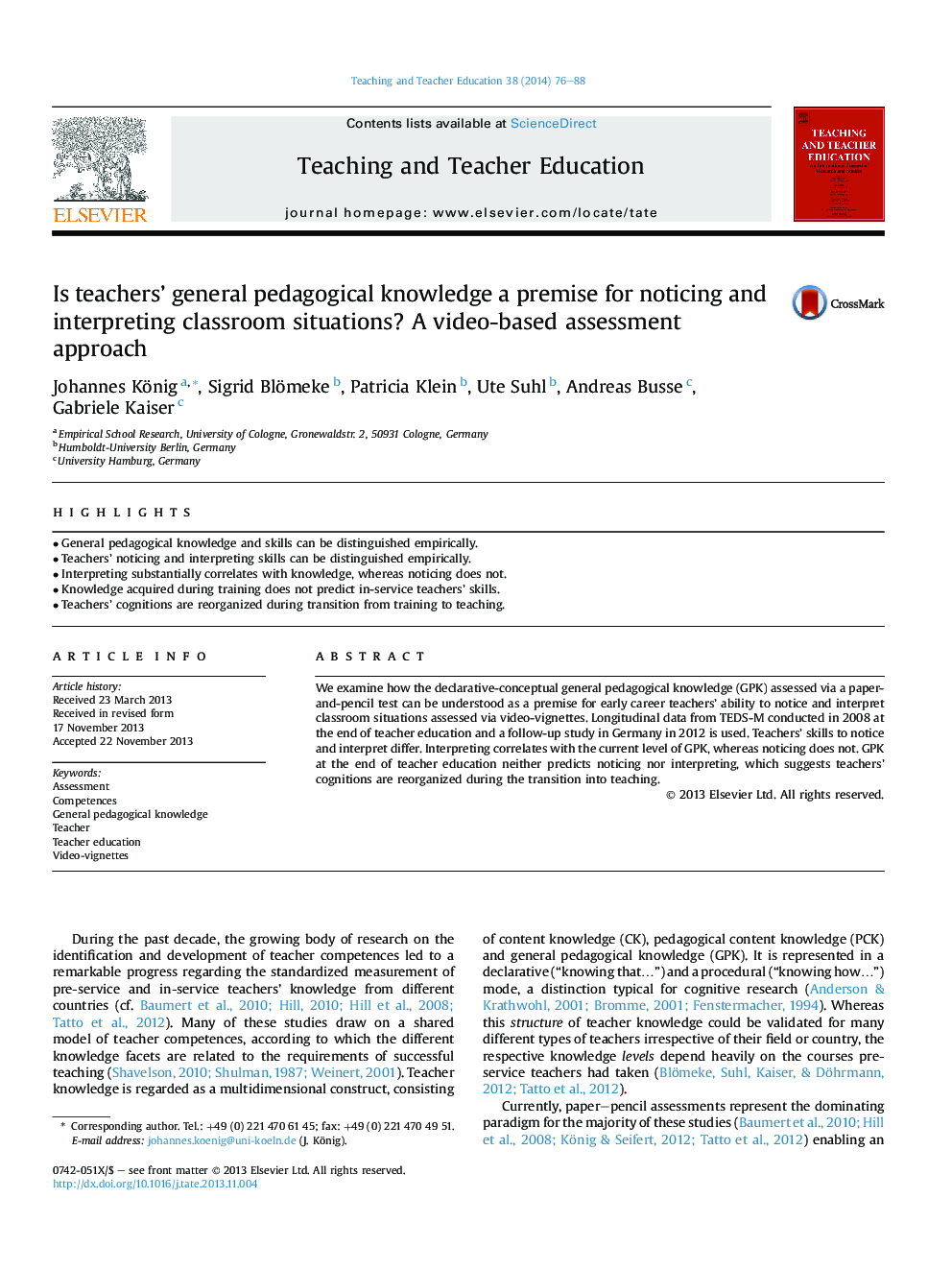| Article ID | Journal | Published Year | Pages | File Type |
|---|---|---|---|---|
| 374036 | Teaching and Teacher Education | 2014 | 13 Pages |
•General pedagogical knowledge and skills can be distinguished empirically.•Teachers' noticing and interpreting skills can be distinguished empirically.•Interpreting substantially correlates with knowledge, whereas noticing does not.•Knowledge acquired during training does not predict in-service teachers' skills.•Teachers' cognitions are reorganized during transition from training to teaching.
We examine how the declarative-conceptual general pedagogical knowledge (GPK) assessed via a paper-and-pencil test can be understood as a premise for early career teachers' ability to notice and interpret classroom situations assessed via video-vignettes. Longitudinal data from TEDS-M conducted in 2008 at the end of teacher education and a follow-up study in Germany in 2012 is used. Teachers' skills to notice and interpret differ. Interpreting correlates with the current level of GPK, whereas noticing does not. GPK at the end of teacher education neither predicts noticing nor interpreting, which suggests teachers' cognitions are reorganized during the transition into teaching.
